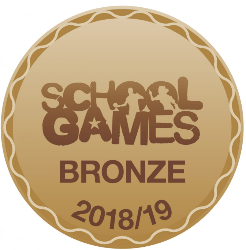Remote Learning
Remote education provision: information for parents
This information is intended to provide clarity and transparency to pupils and parents or carers about what to expect from remote education if local restrictions require entire cohorts (or bubbles) to remain at home.
The remote curriculum: what is taught to pupils at home?
A pupil’s first day or two of being educated remotely might look different from our standard approach, while we take all necessary actions to prepare for a longer period of remote teaching.
What should my child expect from immediate remote education in the first day or two of pupils being sent home?
In the first instance children will be assigned with paper work packs or directed to complete home learning challenges online. Children will also be directed to complete activities on Timestables Rockstars and Bug Club.
Following the first few days of remote education, will my child be taught broadly the same curriculum as they would if they were in school?
We teach the same curriculum remotely as we do in school wherever possible with some lessons adapted where necessary. Lessons we adapt may include enquiry-based lessons within Science, where you would need specific equipment in order to fulfil investigations; Art & Design lessons where specific materials and resources would be required or Design and Technology lessons where specific equipment would also be necessary.
Remote teaching and study time each day
How long can I expect work set by the school to take my child each day?
The government expectation for all primary age children is to be of a minimum of 3 hours per weekday. This is designed to reflect the usual timetable within the school setting and ensure that children do not miss out on valuable learning while they not in their classroom.
- Key Stage 1: 3 hours a day on average across the cohort, with less for younger children
- Key Stage 2: 4 hours a day
Reading
Daily Reading
Daily Reading will be personal to each child and consists of three elements:
1. Reading a book to your child
2. Reading a book with your child – they may be able to sound out or recognise some words
3. Listening to a book read by your child – they will be able to read most of the book to you but may need support with some words.
Children in Years 1 to 6 will be able to access additional Books via Bug Club.
Reading Comprehension
The children in Year 2 to 6 will have a discrete weekly reading comprehension lesson. The children will be provided with a short text or extract to read followed by a series of specifically planned questions to answer linked to a focussed reading domain which is commonly known by the children as the VIPERS. The 6 domains focus on the comprehension aspect of reading and not the mechanics. Vocabulary, Inference, Prediction, Explanation, Retrieval, Sequence or Summarise.
Shared Reading
Within Year 1 and Year 2 the children will be set daily-shared reading activities. Shared reading sessions involve children being exposed to short vocabulary rich texts where they children can physicalise the text in order to internalise the language and meaning allowing them to fully comprehend what they have read. A series of questions will be posed to develop the child’s comprehension.
Guided Reading
Within Year 3 to Year 6 the children will be set daily guided reading activities. This session is structured according to the John Murray principles of reading and can involve text analysis, exploration and a series of focussed questions to develop their understanding. Questions will be set in line with the VIPER approach.
Mathematics
Children will be set online learning tasks in line with the White Rose Mathematics Curriculum. Lessons will be progressive and teachers will assign appropriate differentiate activities for your child to complete. Learning within Mathematics will emulate that what would take place within the normal school classroom.
In addition to formal Mathematics sessions children in Years 2 to 6 are encourage to log into their TimesTables Rockstars account to develop their multiplication and problem-solving skills. Teachers may direct children to complete specific challenges within these applications.
English & Phonics
Children will be set daily online learning tasks by their teacher in line with the school’s English curriculum. Children should complete one writing lesson per day. In addition children will be probided with spelling activties to undertake.
Children in Reception, Year 1 and Year 2 will be directed to complete relevant Read Write Inc tasks set and modelled by their teacher.
Curriculum
In line with the school Curriculum, your child’s teacher will upload teaching and learning materials for a range of subjects dependent on how it aligns with the school curriculum map. The children over the course of their online learning will have curriculum coverage of a range of subjects including History, Geography, Science, Computing, Religious Education, French and Music. Lessons are delivered in a sequence to build upon the pupil’s prior knowledge and to provide a depth of understanding of a topic focus.
In line with our school PE provision, the children will be set learning activities twice weekly. Children are encouraged to undertake additional exercise to support their well being during periods of home learning.
Social Skills
At Oyster Park Primary Academy, we understand that these unprecedented times create a time of uncertainty, unease and worry for many of our pupils. Our Socials Skills curriculum has been adapted to address and support our children, equipping them with the necessary skills and tools to manage their feelings. Each week your child will have access to a Social Skills assembly on the Online Platform and a task set for your child to complete. If at any time during periods of home learning or self-isolation you become concerned for the mental well-being of your child please don’t hesitate to contact school where support will be available.
Remote Learning Daily Timetable
Accessing remote education
How will my child access any online remote education you are providing?
At Oyster Park Primary Academy, all children will have access to an online learning platform. In Nursery & Reception this will be through Tapestry and in Years 1 to 6 it will be through Seesaw. The use of Seesaw for home learning has been modelled to all children in Year 1 to 6 to ensure children are clear on how they can access home learning tasks.
In Key Stage One and Two all children have been provided with their own unique QR code/passcode to log in to their remote learning platform. Copies of this can be found within their home reading record. If you are unable to identify this information please contact the School Office and this will be reissued.
Through the use of Seesaw, teachers will assign differentiated learning activities to meet the needs of your child through various means including recorded teaching sessions. The lessons will provide you with the key teaching steps to ensure learning is successful for your child at home, which can be watched multiple times.
If my child does not have digital or online access at home, how will you support them to access remote education?
We recognise that some pupils may not have suitable online access at home. We take the following approaches to support those pupils to access remote education:
At Oyster Park Primary Academy, all teachers will contact parents to establish if they have access to home learning devices. If a child does not have access to a computer/laptop and/or the internet, the school will do all it can to support children and will provide paper packs of learning. Where funding can be accessed, remote devices (eg, laptops) and/or 4G connections will be sought, particularly for disadvantaged children. Parents will be reminded to make the school aware of any barriers to accessing remote learning.
If parents do not have access to the internet, school will provide your child with a paper copy for home learning which can be collected at the School Office upon request.
Completed packs to be returned to school for marking and feedback and a new pack collected. Where immediate feedback is required your child’s teacher will contact.
How will my child be taught remotely?
We use a combination of the following approaches to teach pupils remotely age appropriate:
· In our Early Years, activities will be planned and set through the use of Tapestry. Teachers will assign learning activities to meet the needs of your child through various means including recorded input sessions.
· In Years 1 to 6, through the use of the app Seesaw, teachers will assign differentiated learning activities to meet the needs of your child through various means including recorded teaching sessions. The lessons will provide you with the key teaching steps to ensure learning is successful for your child at home, which can be watched multiple times.
· Printed paper packs produced by your child’s teachers in line with our school curriculum.
· Reading books pupils have at home
· Commercially available websites supporting the teaching of specific subjects or areas, including video clips or sequences including those of Oak National Academy and BBC Bitesize
· Directed tasks within school purchased resources such as Bug Club, Timestables Rockstars or Mathletics.
Engagement and feedback
What are your expectations for my child’s engagement and the support that we as parents and carers should provide at home?
It is a legal requirement for all children to complete remote learning during periods of school closures or absence.
Wherever possible try and maintain a similar routine. Parents should ensure their child has eaten a good breakfast, and are ready to begin learning by 9am. They will need a quiet space to work.
At 9am they should begin to work through the lessons provided via the online portal.
It is helpful for pupils to take regular breaks. This is an opportunity to take time away from the screen, to get some air. Children are encouraged to exercise each day and fitness is also built into their online school weekly timetable.
All learning activities assigned to your child via Seesaw should be completed and returned to your child's class teacher who will provide marking and feedback via the Seesaw APP each day.
If your child accesses their learning through a paper copy work pack, please return the completed work to the school office upon collection of the child’s new learning work pack. The completed work will be marked and further contact made if needed to address misconceptions or errors.
Children who do not complete their remote learning activities, will be contacted by their class teacher in the first instance to provide additional support.
How will you check whether my child is engaging with their work and how will I be informed if there are concerns?
Staff will make very regular contact with parents. Teachers will be undertaking weekly calls to all pupils in their class to check on pupil wellbeing, provide feedback on any learning and provide support as necessary.
Teachers will be reviewing engagement with remote learning via the Seesaw app and pupils not engaging with learning will be contacted on the second day.
How will you assess my child’s work and progress?
Feedback can take many forms and may not always mean extensive written comments for individual children. For example, whole-class feedback or quizzes marked automatically via digital platforms are also valid and effective methods, amongst many others. Our approach to feeding back on pupil work is as follows:
Children should upload learning to their online learning platform to enable teachers to comment with feedback. This will be daily feedback in line with our school marking and feedback policy.
When children are completing work via a paper work pack once the pack has been returned to school the child’s teacher will mark in line with Covid guidance and phone calls provided as necessary.
School will call children to monitor wellbeing and share verbal feedback. This will also be an opportunity to speak to parents/carers about the progress of their child’s remote education.
Additional support for pupils with particular needs
How will you work with me to help my child who needs additional support from adults at home to access remote education?
We recognise that some pupils, for example some pupils with special educational needs and disabilities (SEND), may not be able to access remote education without support from adults at home. We acknowledge the difficulties this may place on families, and we will work with parents and carers to support those pupils in the following ways:
Mrs Bodycombe, our SENDCo, will ensure that children with SEND needs and those with an EHCP are contacted weekly by your child’s teacher or a member of the inclusion team who will offer bespoke support to you and your child should you require this.
If you require additional support during school hours please contact the school office on 01977 515994 or if this is outside of school hours you can email us at admin@oysterpark.co.uk
Remote education for self-isolating pupils
Where individual pupils need to self-isolate but the majority of their peer group remains in school, how remote education is provided will likely differ from the approach for whole groups. This is due to the challenges of teaching pupils both at home and in school.
If my child is not in school because they are self-isolating, how will their remote education differ from the approaches described above?
If your child becomes unwell during school closures, please inform the School Office to ensure their absence from home learning is recorded.
If your child is self-isolating during a period of normal school opening, please contact school to record their absence and home learning will be provided for your child as outlined above.
Persons responsible for Remote Learning Provision
Mrs S Smithson & Mrs J Lindsay
Remote Learning Letter Support Increasing Data Allowance Letter Remote Learning Parent Safety Guide Remote Learning Children's Safety Guide Accessing Seesaw Via Games Consoles Online Safety Tips







